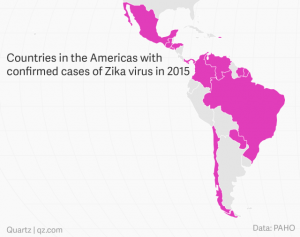Zika, the mosquito-born virus that has been a concern for most of this year, is no longer being considered an international medical emergency.
The World Health Organization (WHO) has lifted the nine-month-old declaration, accepting that Zika is an infection that is here to stay, however, Dr David Heymann, head of a WHO Zika emergency committee, said it still posed a “significant and enduring” threat.
Zika is a virus that has been linked to microcephaly, a condition that causes babies to be born with small heads and restricted brain development.
While spread mostly by mosquitoes, Zika can also be sexually transmitted. Very few people die from Zika and only one in five infected people develop symptoms.
Zika was first discovered in Uganda in 1947 with the first human case being detected in Nigeria in 1954. However in May 2015, Zika was reported in Brazil where it quickly spread. Since then, more than 2,100 cases of Zika have been reported in Brazil alone. Nearly 30 countries, including Mexico, have since been infected with the virus.
According to WHO, there have been 2,593 confirmed cases of Zika throughout Mexico since the outbreak in 2015. Mexico’s Dirección General de Epidemiología has published a report on Zika virus in the country.
Source: riviera-maya-news.com


